Lock Blog
A resource for consumers, locksmiths, and security professionals
A resource for consumers, locksmiths, and security professionals
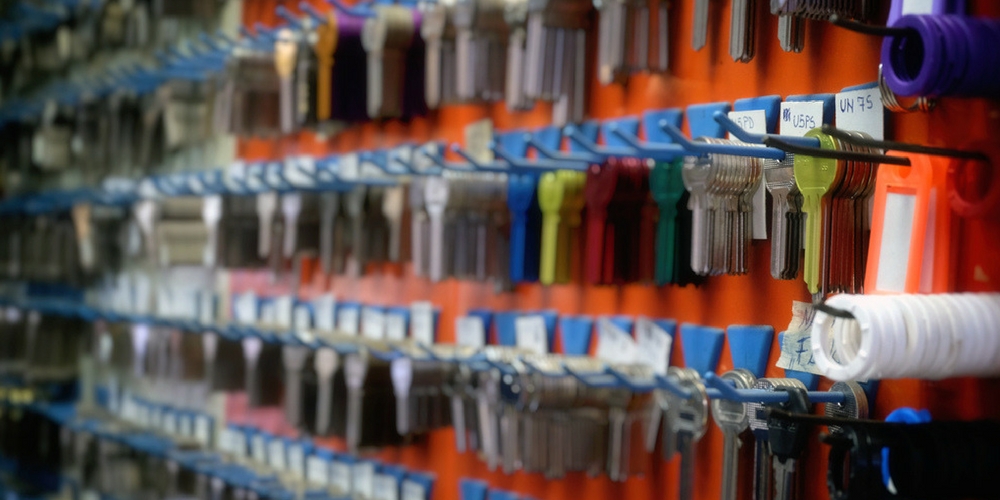
Just like any business, a locksmith must take theft related shrinkage into account. Theft will potentially cost the business money due to the price of replacing tools (if there are issues with insurance), but more likely theft will result in downtime. Without certain tools, the business will be unable to provide every service. These lost jobs are lost income. But theft is only one of the threats facing locksmiths. Locksmiths confront many security concerns, and they can affect all of the various parts of the company.

1. Theft – Locksmiths, despite their security background, are not immune to theft. From customers, bystanders, strangers, and even employees, there are many threats that may result in theft. Protection from theft requires vigilance as well as the use of more advanced security measures. Thefts are much more common if laws prevent unlicensed individuals from attaining locksmithing tools. Stealing tools may be the only way from criminals in your area to get their hands on these supplies.
2. Vandalism – If what you own is not stolen, it could still be broken or damaged. Vandals can damage the perceived security of your business. Anything with the company logo that is in disrepair gives an air of unprofessionalism. More than that, markings from graffiti will show potential customers that you cannot protect your own business. Such a perception by potential customers will create distrust and is likely to cost you work.
3. Assault – The nature of locksmithing puts technicians in a multitude of precarious positions. Everything from working with law enforcement to driving to remote locations offers the chance of bodily harm. Technicians could be robbed, beaten, or worse. There should be procedures in place and training that reduce these severe risks.
4. Negligence – Not doing what you need to do is a sure fire way to endanger your locksmith business and your own safety. You have to be aware of the requirements of your profession. Both the legal requirements and the necessary steps to run a successful business. Not everyone has the characteristics of a great locksmith, but those that are negligent will not be saved by any other character trait. You need to have the intention to protect your business. You need to care.
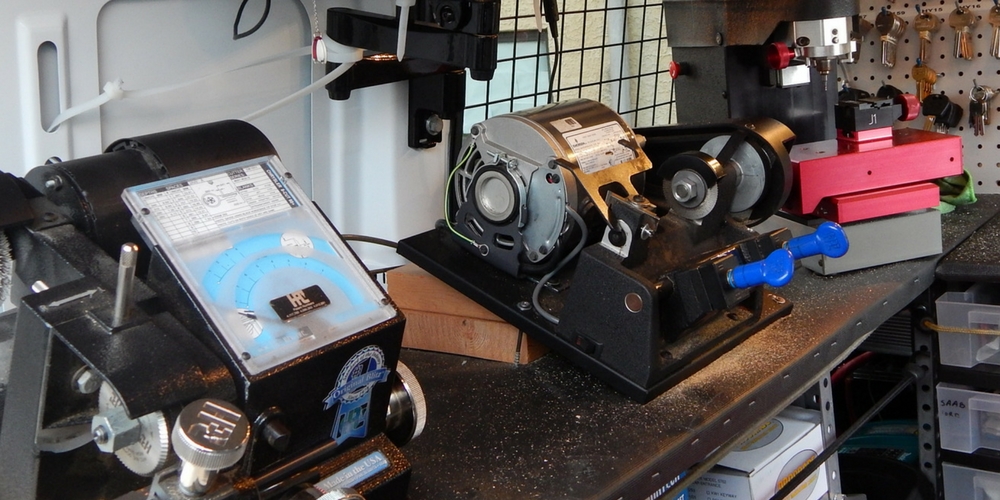
Not every locksmith has a physical location where customers can stop by, but those that do must protect this storefront. During hours of operation, the products on display must be monitored by an employee. In a store, theft can be greatly curbed by placing small items behind a counter or in an employee only area.
Heavy items such as safes, and bulk display items such as doorknob and lock assembly displays, can be left on the showroom floor. Anything that can be easily concealed needs to be out of reach. Make sure that anyone in the store provides the necessary customer service, and this access control should not be off-putting to average visitors.
The shop also has the highest threat of vandalism. Windows should be covered with anti-scratch film. The perimeter should be surveilled with security cameras that comply with your local laws. Cameras used in conjunction with monitored alarm systems can alert you to vandalism and document it so that there can be a timely response and evidence to prosecute the vandals.
In the most extreme cases, there are issues with targeted burglaries. A few years back in Calgary, Alberta (Canada) more than 70,000 dollars worth of locksmithing equipment and tools were stolen. This is not only disastrous for your business and reputation, but it can also put your entire community at risk. Criminals, who are not afraid to break into a business, now have everything they need to commit more crimes with greater ease. Criminals do use stolen locksmith tools to commit burglaries.
This goes to show how important it is to secure your tools and equipment, even while it is inside the building. Chaining and locking larger machines is a great option. If possible, you can store high target items in a hidden safe. And whenever possible, you should bolt down any machinery that remains stationary during hours of operation. This same threat stands for storage units where locksmith equipment is stored. Locksmith storage units have been targeted in the past.
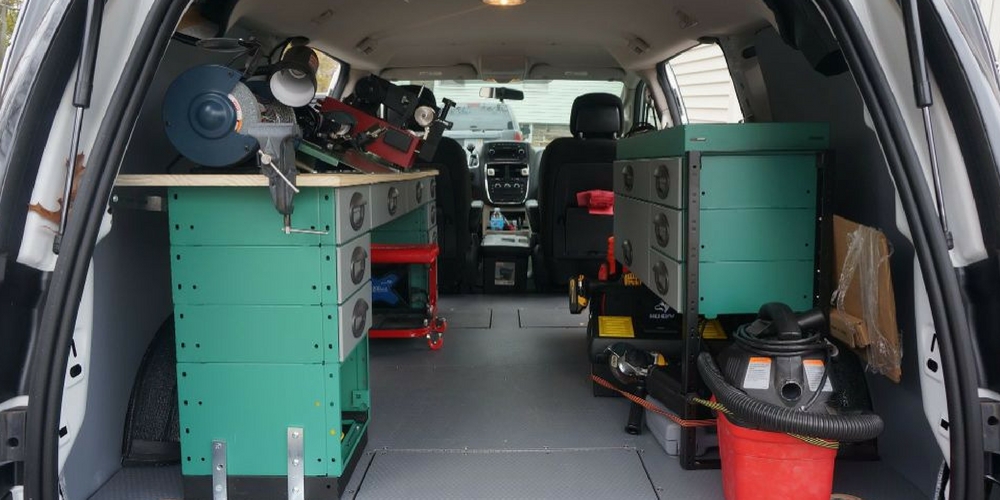
Similar to the case in Calgary (an anecdote that is endemic of trend), your service vehicle can also be targeted. In San Angelo, Texas, over $20,000 worth of equipment was stolen from a locksmith’s van. Among those brought in as suspects for the crime, was a young man with an outstanding murder warrant.
The issue with criminals that target locksmiths, is they often have some background in security. They are likely not to be the standard opportunistic burglars that attack most businesses or residential homes. That is why they will regularly target locksmith vehicles rather than a shop. These criminals know that it is easier to get inside a car than it is a building (and that formidable car security is harder to achieve).
However, the way you can beat these thieves is to notice the trends. Though they may have slightly more knowledge than basic criminals, they are by no means sophisticated security professionals. Very rarely are they stealing the whole car. They are often just getting inside and then removing the tools.
Taking greater lengths to fasten your tools to the van, or even locking several larger machines together, can make unloading almost impossible without the proper keys, professional cutting tools, or lock picking knowledge. But in cases where you are robbed, the entire car is likely to be taken. And armed car robberies involving locksmiths do happen, but they are rarer than standard thefts.
Significantly less serious violations can come during routine service calls. While a locksmith is helping a customer, they can be targeted by criminals. In some cases, these will be simple crimes of opportunity where smaller items like cell phones can be taken from the locksmith’s vehicle. But even this can harm your business if your work phone is stolen.
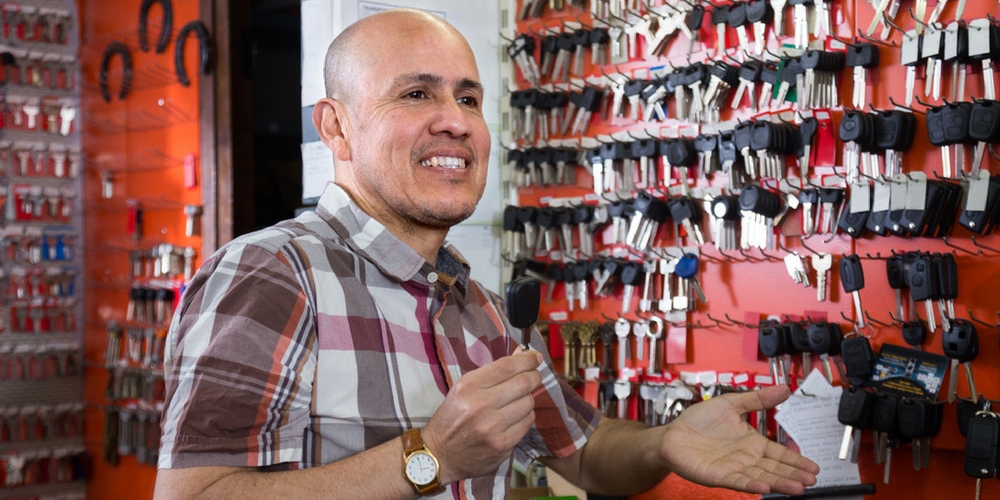
More often than having the car taken during an armed robbery, locksmith technicians will be held up for cash and tools. If you are having a good day with many cash transactions, you should make deposits in the bank or at your storefront. One locksmith was taken for $1,400 cash as well as his tools. It had been a good day for him, up until the moment everything was taken.
These attacks are frequently done by calling for service to lure a technician out into a scheduled area. This allows the criminal to control the environment and set a trap. Most of the time this is not suspicious, as being a locksmith can take you to some very remote locations and place you in a variety of odd encounters.
Technicians are not just in danger when they are on service calls. In the case of mobile locksmith vans, a technician may take his or her work home with them. The type of branded advertising on the vehicle can make any locksmith a target at any time. In some cases, even when the locksmith is by a vehicle in front of their own home, they can still be held up. And in very severe cases, a locksmith carrying a firearm for personal safety may have that gun stolen while being robbed.
These types of concerns can get some employers to consider not hiring female locksmiths, but these types of crimes do not discriminate based on gender, and neither should employers. If having a gun of your own is not enough to protect yourself from this type of danger, then no display of perceived strength will. It is better to be smart. For calls to schedule locations, late night emergencies, and other high-risk scenarios, extra precautions should be taken.
Additional precautions can be taken in the way of simply using a backup employee. Depending on the type of risk, the backup can follow behind or ride with the servicing technician. Self-defense training can also be invaluable, and it can be done in lieu of, or along with, hiring more workers for escort duty. However, it should be stated that in some cases, the safest move may be complying with the criminal’s demands. Money and tools are certainly more replaceable than human lives.
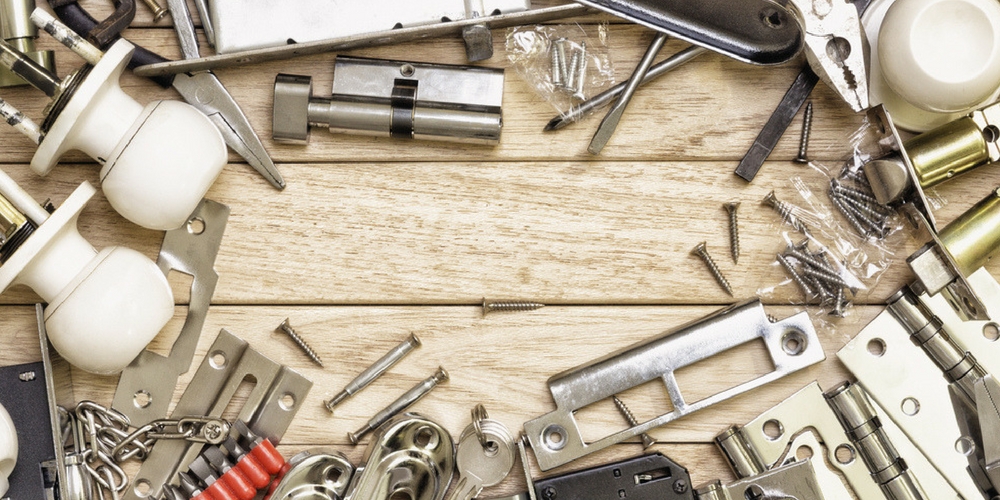
Documenting your tools requires keeping records, and in some cases even marking the tools. Documentation can be as simple as a picture, though there should also be a receipt that displays the value of the item. Marking tools can be as covert as some of the products you would place on automotive parts if you were serious about motorcycle security. Things like smart water or data dot might interest you. For something that will stick out, you could prominently place a stamp on the tool. The stamp should have your company name and phone number.
1. Insurance – Once a theft has taken place, you need the adequate funds to replace your stolen materials. Most often that comes down to your insurance. The policy you have for your business should always include your tools and cover against theft.
For the full cost of the tools to be covered, you should keep receipts. If you do not keep the physical receipt, you may be able to get away with photographing the receipts for tools next to the tool itself.
2. Return – As most people in the security field already know, property crimes rarely end with the stolen items being returned. With something like a prominently placed stamp, a thief may decide to sand off the marking or scuff it so that it is unreadable. However, if they do not, and then they try and sell the tool, you may get a call from an upstanding individual.
Other than catching the attention of a well-meaning civilian, your marks must be documented so that you have a chance of the police recognizing the tool as yours if they ever find them. Of course, this may not be likely. But on the off chance, your tools are recovered, you do want to get them back.
You invest in the best lock picking tools, and you don’t want them stolen by some unscrupulous individual who plans to use your business as a way to steal more from the communities you are looking to protect. This means using quality locks and security on your own property. Just like you should not be peddling locks you would find in Home Depot, you also should not be using them to secure your business. You know what you need to do. Take the steps to protect your company, your tools, your employees, and yourself.
Category: Crime, Safety & Security